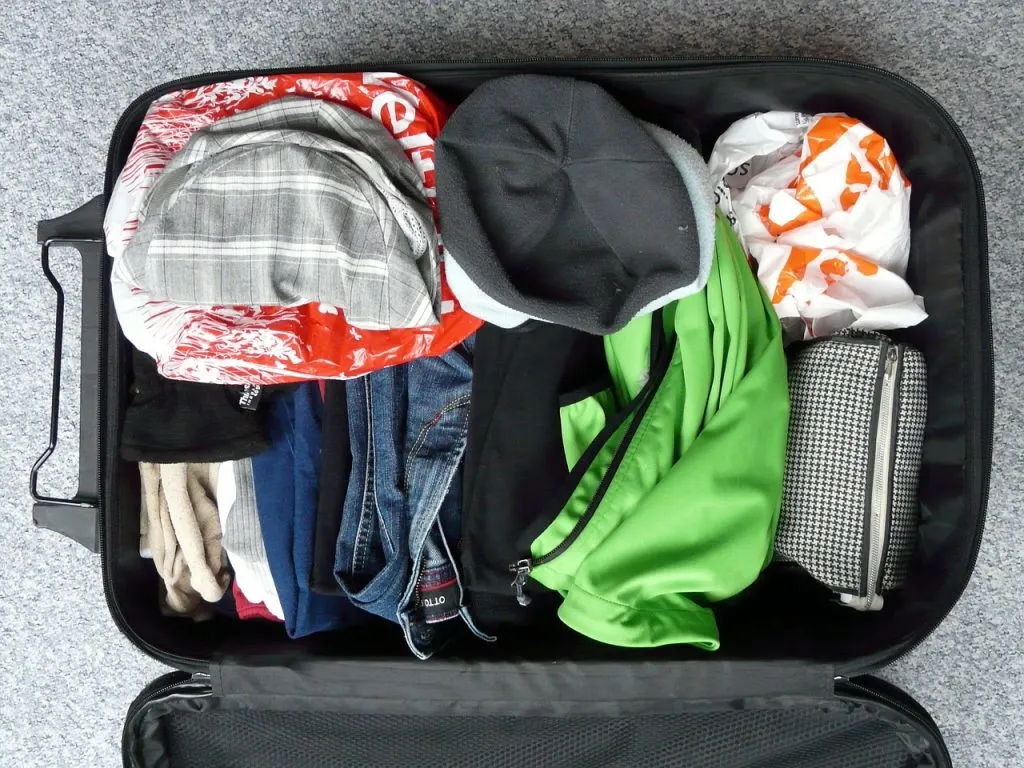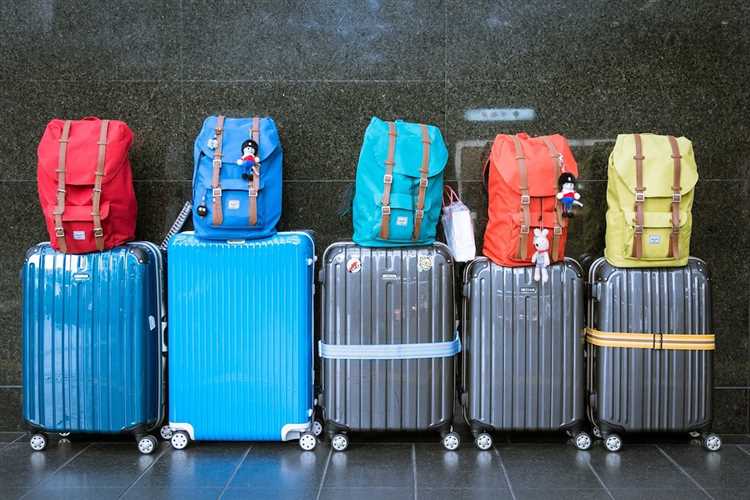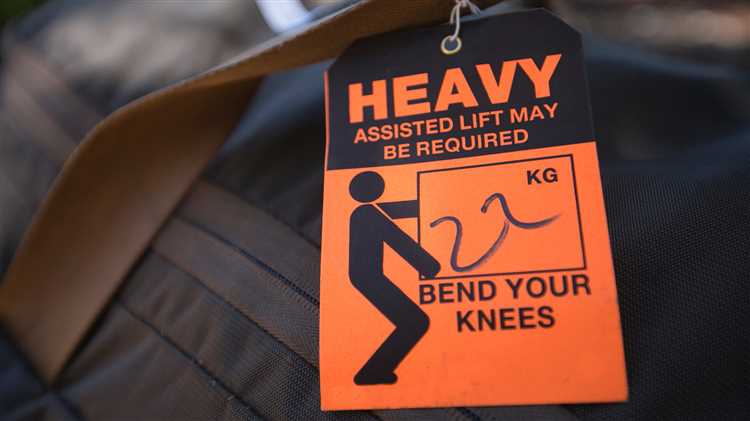When it comes to air travel, luggage weight restrictions are a common concern for travelers. Airlines impose weight limits to ensure safe and efficient handling of baggage. Exceeding the weight limit can result in various consequences, including extra charges, delays, and potential damage to your belongings.
If your baggage exceeds the weight limit by just 1 kg, it may seem like a minor issue, but it can still have significant consequences. Most airlines have strict policies regarding overweight luggage, and the fees for exceeding the weight limit can be quite steep. These fees are often charged per kilogram over the limit, so exceeding the weight limit by just 1 kg can lead to an additional cost that you were not prepared for.
Another consequence of overweight luggage is the potential for delays. Airlines have weight restrictions not only for the safety and convenience of their passengers but also for the efficiency of the aircraft. If your luggage is overweight, it may need to be offloaded and rearranged, causing delays for both you and other passengers. This can be particularly frustrating if you have connecting flights or time-sensitive plans.
Additionally, exceeding the weight limit can put your belongings at risk of damage or loss. Overweight bags are more likely to experience mishandling during loading and unloading, and the added weight can strain the luggage and its components. This increases the chances of zippers breaking, handles getting damaged, or even the bag bursting open during transit. Furthermore, if your bag is significantly overweight, the airline may refuse to transport it, leaving you with the possibility of having to repack or leave belongings behind.
- What Happens If My Baggage Exceeds the Weight Limit by 1 kg?
- Possible Additional Fees
- Transfer of Items
- Extra Fees
- Calculating Extra Fees
- Conclusion
- Delayed Check-in
- Repacking
- Risk of Damaged Luggage
- 1. Damaged Baggage
- 2. Broken Personal Belongings
- Question-answer:
- What happens if my luggage exceeds the weight limit by 1 kg?
- Can I remove items from my luggage to avoid paying the overweight baggage fee?
- Is there a weight limit for carry-on baggage?
- What happens if my carry-on baggage exceeds the weight limit?
- Are there any other consequences of overweight luggage?
- What happens if my baggage exceeds the weight limit by 1 kg?
What Happens If My Baggage Exceeds the Weight Limit by 1 kg?
When you arrive at the airport with your baggage, it is important to ensure that your luggage does not exceed the weight limit set by the airline. However, if your baggage does exceed the weight limit by just 1 kg, you may encounter several consequences.
Possible Additional Fees

One possible consequence of exceeding the weight limit by 1 kg is that you may be required to pay additional fees. Most airlines have specific fees for overweight baggage, and the amount you will have to pay can vary depending on the airline and the destination. These fees can be quite substantial, and it is important to factor them into your travel budget.
Transfer of Items
In order to meet the weight limit requirements, you may be asked to transfer some items from your overweight baggage to your carry-on or personal item. This can be inconvenient and time-consuming, especially if you have to remove and rearrange items in a crowded airport. It is advisable to pack your bags with the weight limit in mind to avoid this situation.
Overall, it is important to be mindful of the weight limits set by the airlines and to pack your baggage accordingly. Exceeding the weight limit by just 1 kg can result in additional fees and inconvenience, so it is best to plan ahead and pack within the weight limit to avoid these consequences.
Extra Fees
If your luggage exceeds the weight limit by 1 kg, you may be subject to extra fees. Most airlines have a strict policy on excess baggage and charge additional fees for any weight over the allowed limit. These fees can vary depending on the airline and the specific weight exceeded.
It’s important to note that the charges for overweight luggage can be quite steep. The excess baggage fees are typically calculated per kilogram, and the cost per kilogram can be significantly higher than the initial baggage allowance rate. For this reason, it’s essential to carefully weigh and pack your luggage before heading to the airport to avoid any additional costs.
If your luggage is only slightly over the weight limit, some airlines may be more lenient and allow you to carry it without any extra charges. However, this is not always the case, and it is best not to rely on such leniency as policies may differ between airlines.
To avoid the hassle and additional fees associated with overweight luggage, it’s advisable to check the weight limits set by the airline you’re flying with and ensure you stay within those limits. Packing efficiently and only bringing essential items can help prevent any unnecessary costs.
Calculating Extra Fees
To give you an idea of what to expect, here is an example of how excess baggage fees are calculated:
| Weight Exceeded | Fee per Kilogram |
|---|---|
| 1 kg | $10 |
| 2 kg | $20 |
| 3 kg | $30 |
| 4 kg | $40 |
Please note that these numbers are for illustrative purposes only and may not accurately represent the fees charged by specific airlines. It’s always best to check the airline’s official website or contact them directly for the most up-to-date information regarding excess baggage fees.
Conclusion

Exceeding the weight limit of your luggage by just 1 kg can lead to extra fees imposed by the airline. These fees can vary based on the airline and the weight exceeded. To avoid any additional costs, it’s recommended to pack efficiently and stay within the prescribed weight limits. Be sure to check the airline’s policies regarding baggage allowances and excess fees before your trip to ensure a smooth and cost-effective journey.
Delayed Check-in
If your baggage exceeds the weight limit by 1 kg, you may experience a delayed check-in process. Airlines have strict regulations when it comes to baggage weight, and exceeding the limit can create logistical challenges for both the airline and the airport staff.
When you check in your overweight luggage, the airline staff will need to process it separately from the rest of the bags. This requires additional time and resources, as they will need to weigh, tag, and handle the bag differently. As a result, there may be a delay in getting your baggage checked in and loaded onto the plane.
During peak travel times or busy airport hours, the delay can be even longer. The airline staff may need to prioritize other passengers’ check-ins, leading to a further wait for your overweight baggage to be processed.
It’s always recommended to arrive at the airport well in advance, especially if you know that your baggage may exceed the weight limit. By allowing yourself extra time, you’ll mitigate the risk of a long delay during the check-in process.
In some cases, airlines may also charge you an additional fee for exceeding the weight limit. This fee is typically charged per kilogram or pound over the limit, and it can add up quickly depending on how much your baggage exceeds the allowed weight.
To avoid potential delays and additional fees, it’s important to familiarize yourself with your airline’s baggage policies and weight limits before you travel. Packing efficiently and weighing your bags beforehand can help you stay within the limits and ensure a smooth check-in process.
Repacking
If you find yourself in a situation where your luggage exceeds the weight limit by just 1 kg, there are several options you can consider. One of the easiest solutions is to redistribute the weight among your other bags or even carry some items in your hand luggage. In this case, you will need to prioritize your belongings and decide which items are necessary to take with you.
An effective way to repack your luggage is to create a checklist of essential items and remove any non-essential or bulky items that may contribute to the excess weight. Consider leaving behind items that you can easily replace or borrow at your destination.
You can also try to downsize your toiletry items by transferring them into travel-sized containers or by purchasing travel-sized versions of your favorite products. Additionally, opt for lightweight clothing and avoid packing unnecessary items such as multiple pairs of shoes or heavy electronics.
Another strategy is to wear heavy or bulky items, such as coats or boots, during your travel. This can help reduce the weight of your checked luggage while keeping you warm and comfortable.
If repacking is not an option and your luggage still exceeds the weight limit, you may have to pay additional fees or consider shipping some items separately. It is important to check with your airline or transportation provider beforehand to understand their policies and fees regarding overweight luggage.
Remember to always pack responsibly and within the weight limits to avoid any unnecessary hassles or expenses during your journey.
Risk of Damaged Luggage

When exceeding the weight limit by just 1 kg, there is an increased risk of damage to your luggage. Airlines have weight restrictions in place to ensure the safety of all passengers and crew members. When bags are overweight, it puts additional strain on the aircraft and can compromise its structural integrity, especially during takeoff, landing, and turbulent conditions.
Excessive weight can cause the luggage to become unstable and increase the likelihood of it being mishandled during loading and unloading processes. The additional weight may cause the baggage handlers to handle it carelessly, which can lead to your bags being dropped, thrown, or stacked improperly.
1. Damaged Baggage
Overloaded luggage can result in bags being damaged either externally or internally. The exterior of the bag may become scratched, torn, or dented due to mishandling or rough treatment. Excessive weight can also put strain on the bag’s zippers, handles, and wheels, increasing the risk of them breaking or becoming damaged.
2. Broken Personal Belongings

When the weight limit is exceeded, the chances of your personal belongings getting damaged also increase. Fragile items, such as electronics, glassware, or delicate souvenirs, are particularly at risk. They may get crushed or cracked under the pressure of the excessive weight or due to rough handling.
In addition to physical damage, there is also a higher risk of your items becoming lost or misplaced during transfers or while being moved from one location to another. This can be frustrating and may result in permanent loss of valuable possessions.
It’s important to pack your luggage within the weight limit to minimize the risk of damage and ensure the safety of your belongings.
Question-answer:
What happens if my luggage exceeds the weight limit by 1 kg?
If your luggage exceeds the weight limit by 1 kg, you may be required to pay an overweight baggage fee. The fee can vary depending on the airline and destination. It’s important to check with your airline before your flight to see what their specific policies are.
Can I remove items from my luggage to avoid paying the overweight baggage fee?
Yes, you can remove items from your luggage to reduce the weight and avoid paying the overweight baggage fee. However, keep in mind that you should check the airline’s rules and regulations regarding this matter, as some airlines may require you to pay the fee regardless of whether you remove items or not.
Is there a weight limit for carry-on baggage?
Yes, there is usually a weight limit for carry-on baggage as well. The weight limit can vary depending on the airline, but it is typically around 7-10 kg. It’s important to check with your airline to see what their specific weight limit for carry-on baggage is.
What happens if my carry-on baggage exceeds the weight limit?
If your carry-on baggage exceeds the weight limit, you may be asked to remove items or transfer them to your checked baggage. In some cases, you may be required to check your carry-on baggage and pay a fee if it exceeds the weight limit. The specific policies can vary depending on the airline and destination.
Are there any other consequences of overweight luggage?
Yes, there can be other consequences of overweight luggage. In addition to paying overweight baggage fees, you may also face delays at the check-in counter or have to undergo additional security screenings. Overweight luggage can also be more difficult to handle and transport, which can be inconvenient for both the airline staff and yourself. It’s best to pack within the weight limits to avoid any potential consequences.
What happens if my baggage exceeds the weight limit by 1 kg?
If your baggage exceeds the weight limit by 1 kg, you may be required to pay an overweight baggage fee. The fee can vary depending on the airline and your destination. It’s always a good idea to check with your airline in advance to see what their specific policies and fees are for overweight baggage.